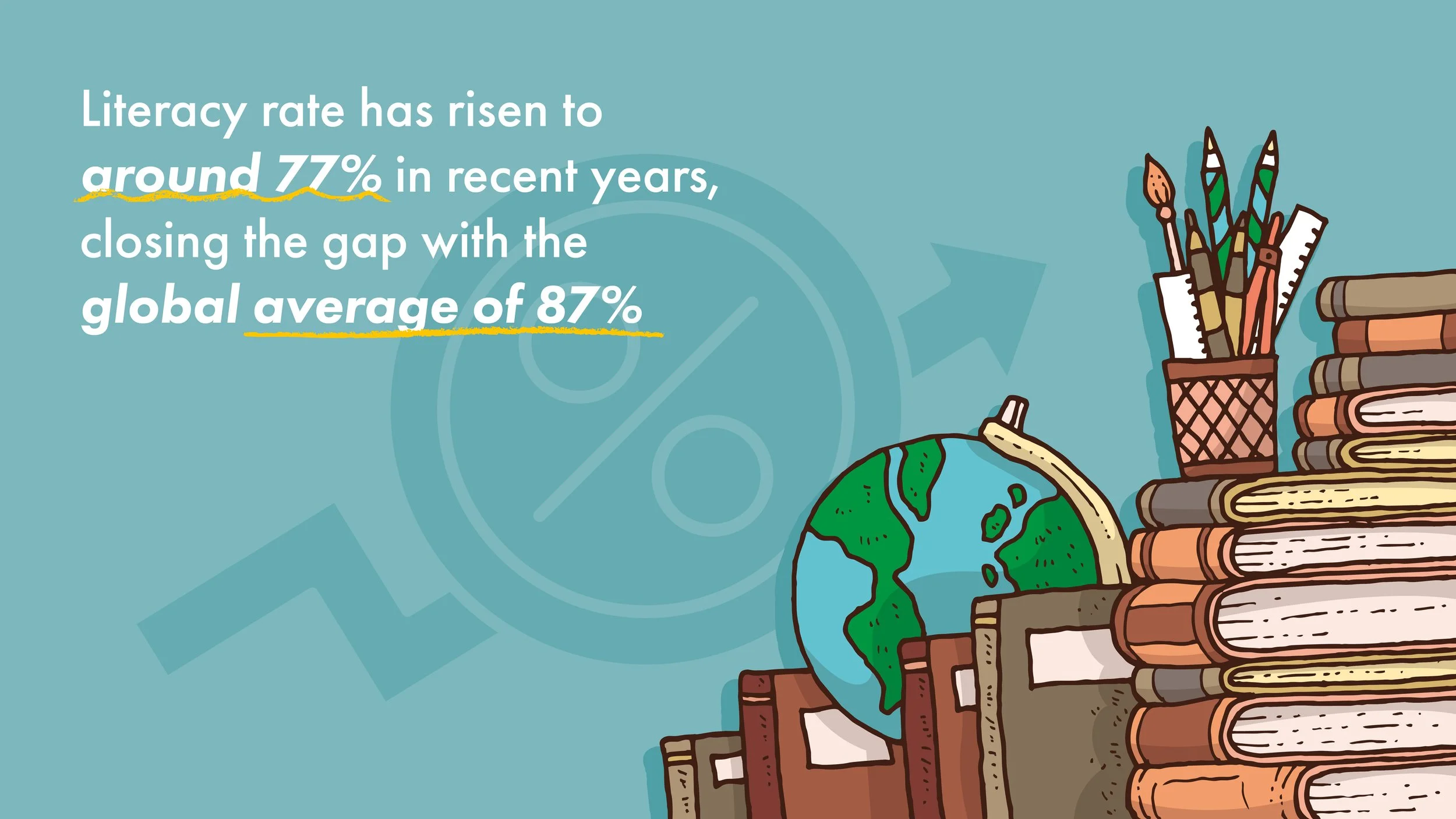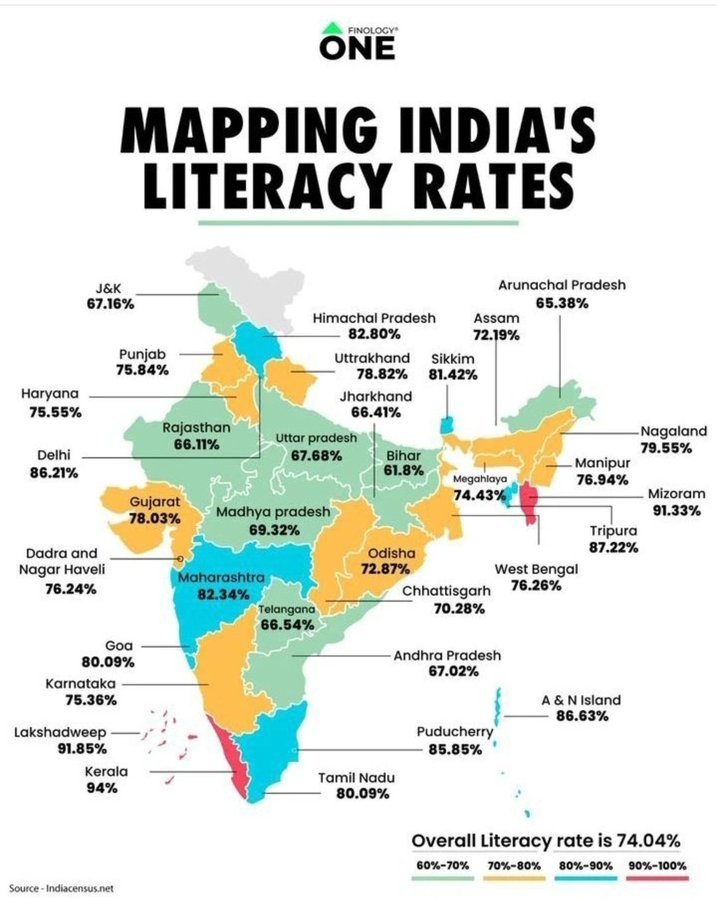How Education Influences Democracy:
The Importance of Educated Voters and Why It Should Be an Election Priority
2024 is a crucial year for democracies around the world: some would even regard it as a litmus test for democracy. India is in the midst of the world's largest democratic election, with an electorate of one billion, which is nearly three times the size of the population of the United States. In both India and the U.S., the spotlight intensifies on the pivotal role of education in shaping democracies. The fundamental question remains: is education on the election agenda, and why is it imperative that it be?
The Critical Link Between Education and Democracy
Education is the backbone of a vibrant democracy. An educated electorate is vital for informed decision-making and sustaining democratic institutions. This becomes particularly crucial as nations like the U.S. and India head to the polls. In India, the literacy rate has risen to around 77% in recent years, closing the gap with the global average of 87%. However, the literacy rates in India vary significantly based on state and region, much like in the U.S. For example, Kerala stands as the most literate state at 94%, while others like Uttar Pradesh lag behind around 68%. These gaps further widen when it comes to male-to-female literacy rates. The disparities in educational access can drastically hinder and in some cases even cripple the democratic process.
Educated voters are better equipped to critically analyze policies, understand the stakes involved in elections, and make choices that reflect not just personal gains but the collective good of families, community, and the nation. It also empowers citizens against political manipulation and fake news. The ability to read, write, and comprehend empowers individuals to navigate complex political ideologies and party platforms, fostering a more informed and engaged population. The higher the education level, the better their ability to make well-informed choices.
Expanding Educational Opportunities
The call for expanding educational opportunities, especially for women and girls, echoes across continents. Education is not just a pathway to personal empowerment but a critical issue that should be on the agenda during every election. It should be a priority for all candidates to promote, as it directly impacts the health and future of democracies. Every candidate should be expected to have a publicly stated position on advancing education to run for any office.
The link between women's education and societal health is undeniable. Educated women are more likely to participate in the political process, advocate for social changes, and work to break the cycles of entrenched patriarchy. However, because of the disparity in access to education in India, women have a much lower literacy rate than men — around 69%. Initiatives like Tiyara's scholarship programs for under-resourced students are pivotal in changing these narratives and fostering new generations of informed, capable women leaders. Our work not only supports individual students but also contributes to the broader goal of dispelling patriarchy and enhancing democratic engagement through education.
The Need for Constitutional Reforms
The Indian Constitution, though a monumental document, originally lacked provisions for fundamental rights to education, health, and employment. One of the original architects of the document, Dr. B. R. Ambedkar, offered a poignant critique of the Constitution in 1953, saying:
"My friends tell me that I have made the Constitution. But I am quite prepared to say that I shall be the first person to burn it out. I do not want it. It does not suit anybody. I was a hack. What I was asked to do, I did much against my will."
In fact, the Constitution was mainly drafted by a team of Bureaucrats led by the Indian Civil Service officer, Benegal Rau, and said that the majority of the document was a verbatim copy of the colonial Government of India Act of 1935.
Education, as Ambedkar advocated, is essential not just for personal advancement but as a cornerstone of democracy and human dignity. This constitutional oversight has had lasting implications, especially for marginalized communities and women who still face significant barriers to accessing education and equal rights.
Ambedkar's vision for an inclusive society where education and health are fundamental rights remains a guiding light. This struggle is particularly relevant as we explore the importance of education in democratic societies, with elections being one of the best ways to promote change and expand educational opportunities.
Ambedkar embodied his vision. Regarded as one of India’s national heroes, Ambedkar rose from a discriminated caste background and backed by a scholarship from Maharaja Gaikwad of Baroda went on to earn nine degrees, including a DSc (Doctor of Science) from the London School of Economics and a PhD from Columbia University.
Education on the Election Agenda: A Necessity
The ripple effect of education is profound. It extends beyond individual achievement and touches every aspect of societal health, from economic stability to political vibrancy. As India and the U.S. approach their respective elections, it is imperative that voters and candidates alike recognize the transformative power of education. It is not just an electoral issue but a foundational pillar for any democracy aiming to foster equity, growth, and innovation.
For democracies worldwide, the lesson is clear: invest in education, empower your electorate, and watch democracy thrive. As we ponder the future of nations like India and the U.S., let us remember that the key to unlocking the potential of millions lies in the pages of books and the minds of educated citizens, ready to lead their countries toward brighter, more inclusive futures.
At Tiyara, we seek to provide higher education scholarships that will make life-changing differences for under-resourced young women and men. Scholarships are also extended to young women and men who belong to indigenous populations living in remote areas or who have had their lives changed by discrimination because of crimes committed by a family member and others who face discrimination because of their caste.
You can help make dreams come true by providing education for Tiyara’s scholars, and helping to put a deserving young person through college! In doing so, you’ll propel not just one student, but the global community toward a brighter, more equitable future.



